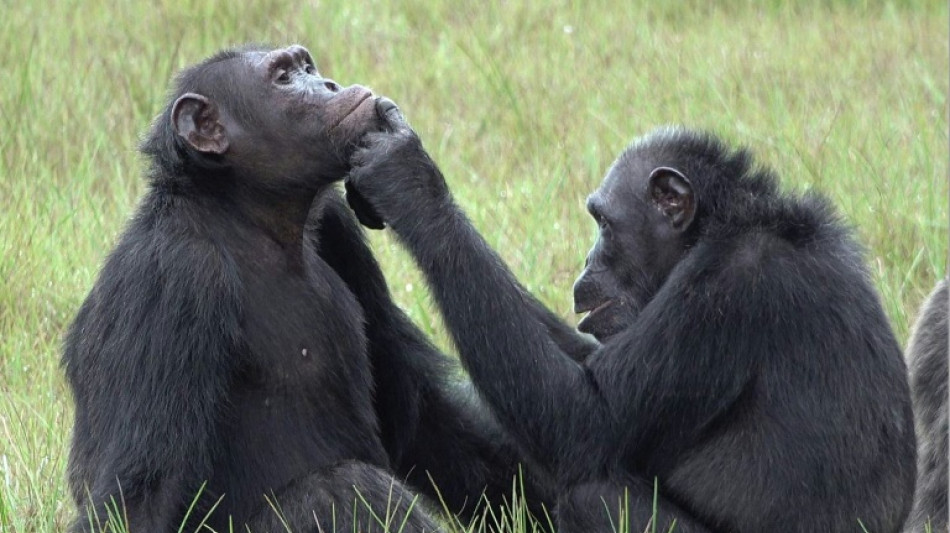
-
 Inothewayurthinkin denies Mullins, Galopin Des Champs Gold Cup hat-trick
Inothewayurthinkin denies Mullins, Galopin Des Champs Gold Cup hat-trick
-
Inothewayurthinkin beats Galopin Des Champs to win Cheltenham Gold Cup

-
 Sebastian Coe criticises IOC election process
Sebastian Coe criticises IOC election process
-
Israel PM, security agency fight it out in public

-
 Courtois returns from Belgium exile for Nations League duty
Courtois returns from Belgium exile for Nations League duty
-
Dupont absence 'changes nothing' for Alldritt before France's Six Nations decider

-
 Russia 'committed crimes against humanity' in Ukraine: UN probe
Russia 'committed crimes against humanity' in Ukraine: UN probe
-
Trump hails 'productive' truce talks with Russia, urges Putin to spare Ukrainians
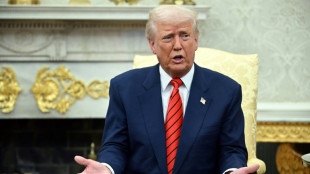
-
 Hundreds of Olympians call on IOC candidates to make climate top priority
Hundreds of Olympians call on IOC candidates to make climate top priority
-
Florence cathedral closed as Italy's Tuscany on flood alert

-
 Mark Carney: Canada's new PM charted unusual path to power
Mark Carney: Canada's new PM charted unusual path to power
-
Arteta 'proud' of Lewis-Skelly's England call-up

-
 Mark Carney sworn in as Canada PM
Mark Carney sworn in as Canada PM
-
US govt shutdown in balance after top Democrat avoids fight

-
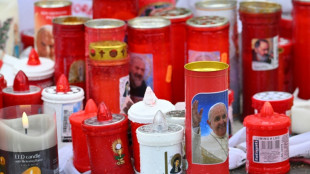 Pope marks month in hospital as footballers send messages
Pope marks month in hospital as footballers send messages
-
Crew launch to ISS paves way for stranded astronauts' homecoming

-
 Hamas says ready to free Israeli-US hostage, four bodies
Hamas says ready to free Israeli-US hostage, four bodies
-
Wainwright says Wales want to send Sherratt out on Six Nations high

-
 Just looking at images of nature can relieve pain, study finds
Just looking at images of nature can relieve pain, study finds
-
Guardiola relishing 'big fight' for Champions League qualification

-
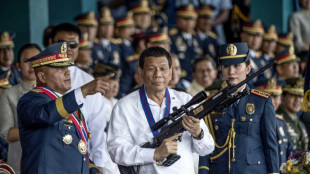 Duterte follows ICC hearing over drug war case via videolink
Duterte follows ICC hearing over drug war case via videolink
-
Mark Carney to be sworn in as Canada PM

-
 Chelsea can be flexible, says Maresca
Chelsea can be flexible, says Maresca
-
UN migration agency laying off around 20% of HQ staff amid US aid cuts: sources
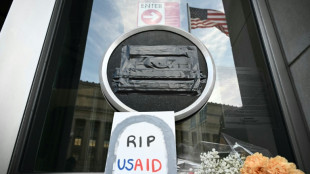
-
 Pique denies Rubiales kickbacks in Spanish Super Cup move to Saudi
Pique denies Rubiales kickbacks in Spanish Super Cup move to Saudi
-
Tuchel hopes to bring Premier League power to England reign

-
 UN chief promises to do "everything" to avoid food cuts to Rohingyas in Bangladesh
UN chief promises to do "everything" to avoid food cuts to Rohingyas in Bangladesh
-
UniCredit gets ECB nod on Commerzbank stake, but delays merger decision

-
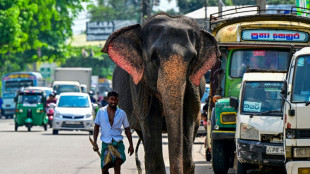 Sri Lanka adjusts train timings to tackle elephant deaths
Sri Lanka adjusts train timings to tackle elephant deaths
-
Scotland out to 'disrupt' France's Six Nations title hopes, says Russell

-
 BMW expects big hit from tariffs after 2024 profits plunge
BMW expects big hit from tariffs after 2024 profits plunge
-
Bayern's Kim sidelined for 'several weeks' with injury

-
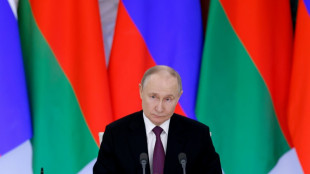 Kremlin says Putin sent 'additional' signals to Trump on ceasefire
Kremlin says Putin sent 'additional' signals to Trump on ceasefire
-
Funding cuts force WFP to stop food aid to one million in Myanmar

-
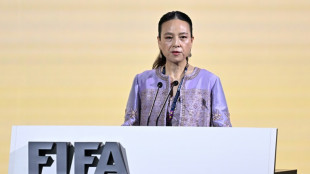 Thai football body to sue former chief over finances
Thai football body to sue former chief over finances
-
Spain call up Asencio for Nations League quarters

-
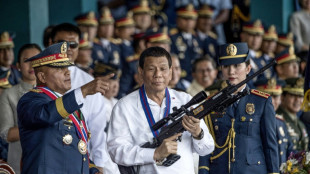 Duterte set to face ICC judges in drug war case
Duterte set to face ICC judges in drug war case
-
Gold tops $3,000 for first time on Trump tariff threats

-
 Canada's Carney to be sworn in as new PM
Canada's Carney to be sworn in as new PM
-
Brignone on verge of World Cup glory with La Thuile super-G triumph

-
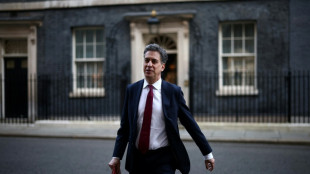 UK energy minister heads to China to talk climate
UK energy minister heads to China to talk climate
-
Fernandes hits back at Ratcliffe over 'overpaid' jibe

-
 Liverpool's Alexander-Arnold to miss League Cup final in injury blow
Liverpool's Alexander-Arnold to miss League Cup final in injury blow
-
'God never sleeps': Philippines opponents of Duterte's drug war

-
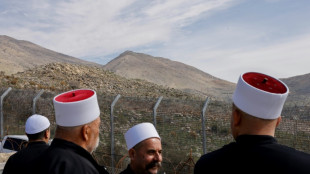 Syrian Druze cross armistice line for pilgrimage to Israel
Syrian Druze cross armistice line for pilgrimage to Israel
-
Thousands pay to catch glimpse of Ohtani practise in Tokyo

-
 French finance minister calls trade war 'idiotic', plans US trip
French finance minister calls trade war 'idiotic', plans US trip
-
UN chief in Rohingya refugee camp solidarity visit

-
 Rashford, Henderson recalled in Tuchel's first England squad
Rashford, Henderson recalled in Tuchel's first England squad
-
WFP says funding shortfall forces it to cut food aid to 1 mn people in Myanmar


Treating wounds with insects: the strange habits of Gabon chimps
How to treat a wound?
For humans, the first instinct would be to disinfect it and then cover it with a bandage.
But chimpanzees have invented a more creative method: catching insects and applying them directly to the open wound.
Scientists observed this behavior in chimpanzees in the West African nation of Gabon, noticing that the apes not only use insects to treat their own wounds, but also those of their peers.
The research, published Monday in the journal Current Biology, marks an important contribution to ongoing scientific debate about the ability of chimpanzees -- and of animals in general -- to selflessly help others.
"When you're going to school and you read in your biology books about the amazing things that animals can do," Simone Pika, a biologist at the University of Osnabruck in Germany and a co-author of the study, told AFP. "I think it could really be something like that that will end up in those books."
The project began in 2019, when an adult female chimpanzee named Suzee was observed inspecting a wound on the foot of her adolescent son.
Suzee then suddenly caught an insect out of the air, put it in her mouth, apparently squeezed it, and then applied it to her son's wound.
After extracting the insect from the wound, she applied it two more times.
The scene unfolded in Loango National Park on Gabon's Atlantic coast, where researchers are studying a group of 45 central chimpanzees, an endangered species.
Over the following 15 months, scientists saw chimpanzees administer the same treatment on themselves at least 19 times.
And on two other occasions they observed injured chimpanzees being treated in the same way by one or several fellow apes.
The wounds, sometimes several centimeters wide, can come from conflicts between members of same or an opposing group.
Far from protesting the treatment, the bruised chimpanzees were happy to be tended to.
"It takes lot of trust to put an insect in an open wound," said Pika. "They seem to understand that if you do this to me with this insect, then my wound gets better. It's amazing."
- Soothing properties? -
Researchers have not been able to identify what bug was used on the wounds, but they believe it to be a flying insect given the chimpanzees' rapid movement to catch it.
Pika says the insect could contain anti-inflammatory substances that have a soothing effect.
Insects are known to have various medical properties and researches will need to conduct more work to detect and study the insect in question.
Birds, bears, elephants and other animals have already been observed self-medicating, for example by eating plants.
But what is unique about chimpanzees is that they will treat not just themselves, but also help others.
Some scientists, however, still doubt the ability of animal species to exhibit prosocial behaviors, such as selflessly caring for others, Pika said.
But here the chimpanzees have nothing to gain, she stressed. So why do they do it?
In humans, prosocial behavior is generally linked to empathy.
Could the same feeling be at play in chimpanzees, Pika wondered.
"It is a hypothesis that we must study," she said.
S.Keller--BTB


